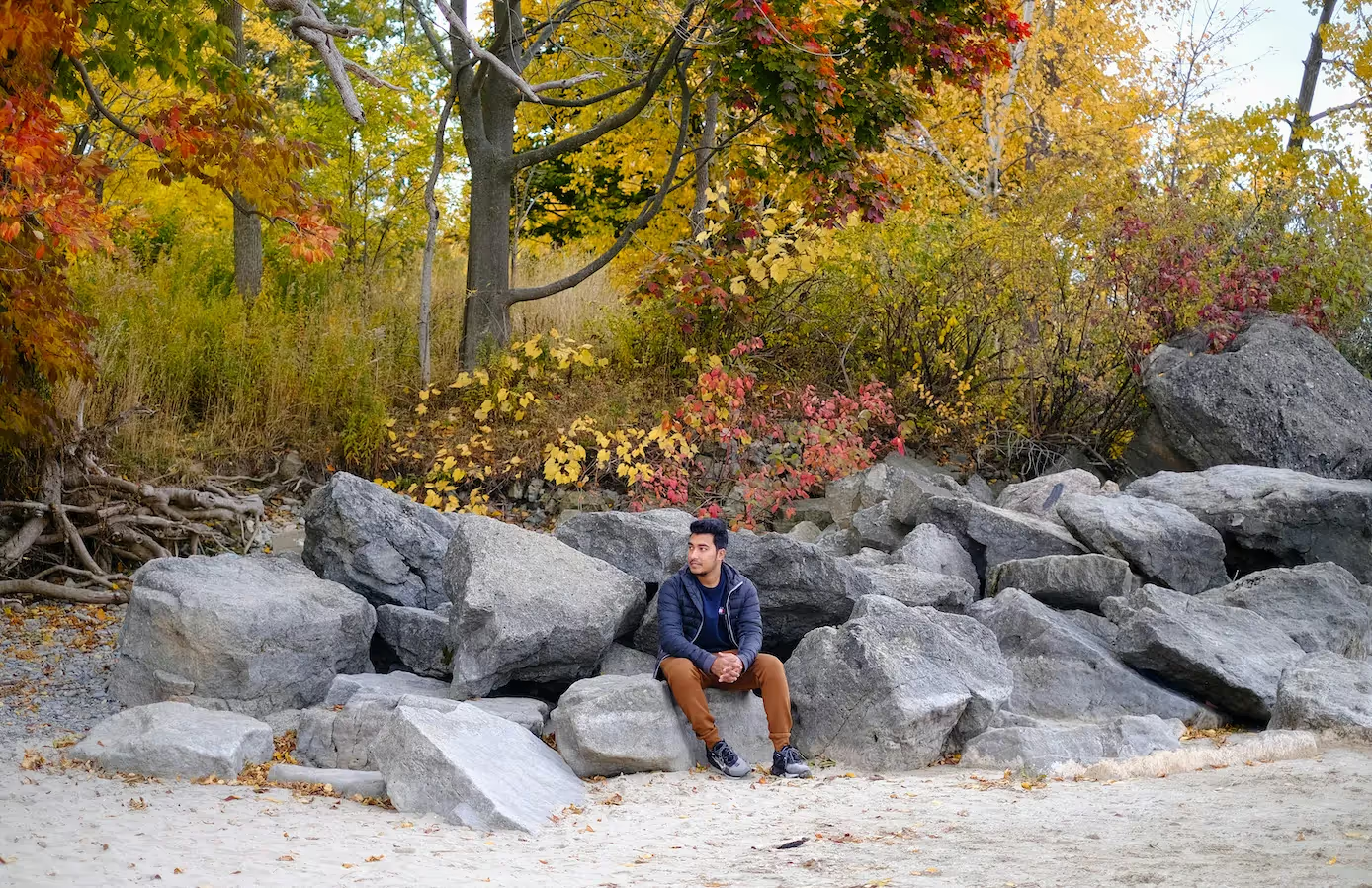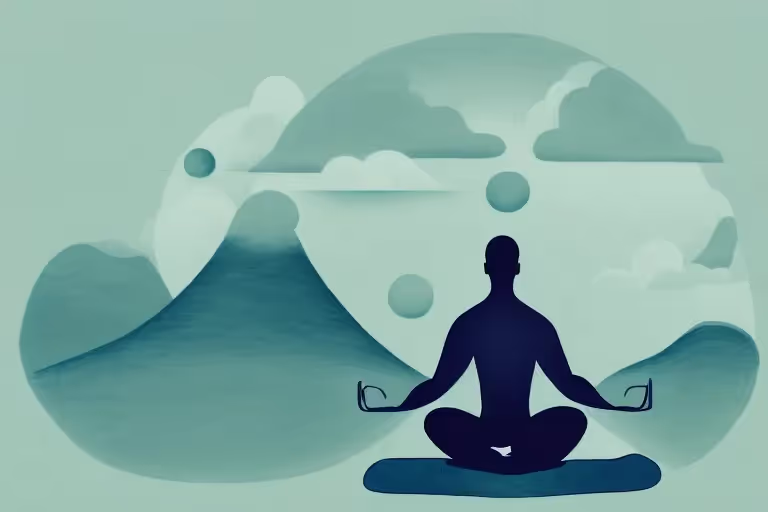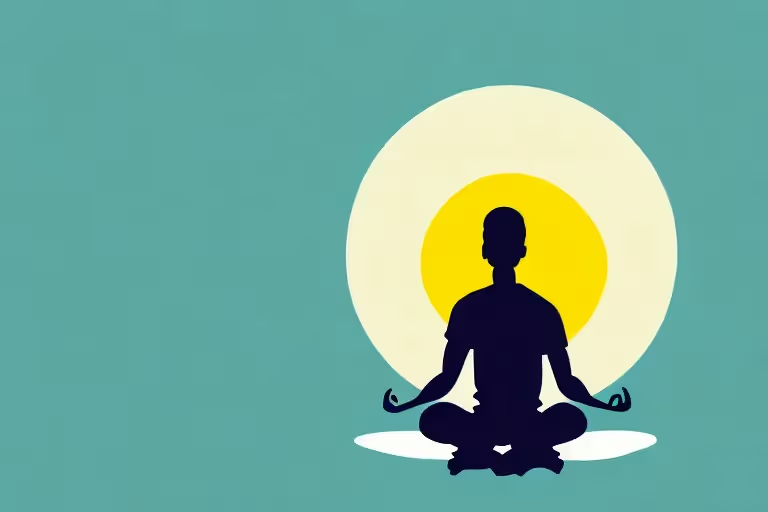Physical and psychological resilience might seem ingrained in some people, but it is a skill that can be learned. We can do this by cultivating more self-awareness and building up the protective factors in our lives. Protective factors are the characteristics, conditions, or communities that help us cope with stress, trauma, or fear. This includes immediate social support networks and methods to build self-efficacy through community.
To augment external protective factors, we can build more optimism and positive emotions during difficult times by creating a personal resilience strategy that includes internal tools, such as meditation and mindfulness, journaling, and specific cognitive reframing techniques. All of us can benefit from learning techniques to bounce back quicker from adversity or streby building a resiliency strategy that works for us.
Mental Health and Resilience
Resilience is key in maintaining mental health and avoiding complications or disorders that may result from maladaptive behaviors. Psychological resilience specifically means pinpointing how we respond cognitively to stressful situations and figuring out how to set ourselves up for success.
Resiliency is not about being tough, it's about being strategic and self-aware. It plays a critical role in promoting mental health recovery, according to the Mayo Clinic, which states "Resilience can help protect you from mental health conditions, such as depression and anxiety. Resilience also can help you deal with things that increase the risk of mental health conditions, such as being bullied or having trauma."
“It’s not events that upset us but rather our opinions about them.” — Epictetus
Resilience Practices to Try Today
We can build our cognitive or mental resilience in many ways, and a few are listed below. These exercises are aligned with cultivating more protective factors in your life. The process of implementing any of these techniques will support you on your path toward increased resilience and personal resilience training.
- Practice self-awareness by doing an inventory: Think about all the difficulties you've lived through and the resilience you've already displayed in your life to date. Write these things down and reflect on how you found the strength to keep going in the face of stress or hardship.
- Build your toolkit with gratitude practices: We can reframe experiences by looking at what we have to be thankful for instead of what is bothering us. Take a moment to list everything that brings you strength or peace. For 2 minutes, list as many things as you can. You can also use a guided visualization or meditation on gratitude.
- Negate negative emotions by supporting others: This might seem counterintuitive, but it can help us to get out of our ruts when we reach out to support others. This can be a small act, such as helping a neighbor or volunteering for a few hours, but small acts can remind us of our interconnectivity with the world.
- Use mindfulness to find meaning in every moment: You can center yourself by practicing mindfulness and meditation. Leveraging mindfulness to find more meaning means going into your practice to clarify your values and goals. To practice this, find a few minutes to focus on your breath and think about how your values play a role in your life. How can you find strength from them during times of stress? Sitting with this question is enough, but if you want to augment this exercise, get out a journal and write down what comes up.
- Practice breathing exercises for immediate resilience: Many times, we feel acute anxiety and need an immediate technique to support us. We don't have the luxury of time to practice meditation or reflect. In these circumstances, breathing exercises are the most powerful physical and mental resilience technique I know. Familiarize yourself with a few breath practices for stress or anxiety and find what works best for you.
- Use the RAIN technique to bring yourself into the moment during times of unexpected or immediate stress: To practice the RAIN technique, which can be practiced as a meditation or reflection, starts with recognizing what difficulties you are going through honestly. The second step is accepting what you can and cannot change about the situation. Investigating the situation from different angles is third; in other words, thinking about it from a problem-solving standpoint. And finally, practicing self-care by sending yourself compassion and nurturing energy. This practice, popularized by Tara Brach, has proven effective in supporting people through difficult times.
- Think about what you'd tell a friend: We all have been there for someone else who is facing setbacks, but why can't we be there for ourselves in the same way? A huge part of stress management and resilience training is learning to look at things from an objective point of view. For this exercise, imagine you are observing your situation from the outside. What advice or perspective could you offer?
Resilience in Mental and Physical Health
Resilience strategies support mental and physical health improvement in myriad ways. One of the most important is emotional regulation, which demands attention to the mind and body. Researchers in Finland compiled the first authoritative atlas of “body maps” that detail where we feel emotions. This research used heat sensors to explore how the body reacts to certain emotions. Understanding how the body and brain work together is vital in building a personal resilience strategy for your well-being.
While we don't all have complicated medical equipment at home to scan our body for reactions, we have a keen sensor. By leveraging meditation and mindful practices, we can better understand how the body reacts in different scenarios, which will help us cope with stressors and find more resilience.
Practice: Take time to think about where you hold stress in your body. You may even want to recount a stressful situation and observe where you tense or what happens. Once you have this information, see if you can begin to relax that area, breathing into it and sending yourself compassion.
The more you practice this, the more you will head off any negative physical impacts of adversity or stressful situations.
Your Resilience Strategy
The key to building resilience in your day-to-day life means building a habit of automatically leveraging resilience techniques that work for you in the face of adversity. This takes practice. Experiment with some of the mind-body practices above and use your meditation time to explore how to use resilience as a tool for adapting to change and dealing with adversity in the moment. Resilience techniques can also support recurring stressors and our ability to better respond to trauma.
Some strategies for using resilience to manage daily stressors might be easier for you than others. I recommend experimenting with them all and noting what works and what begins to work more over time. To build resilience can take time, but it is possible. We can find ourselves better able to address psychological distress and physical stress, while also finding more joy in our lives by learning to lean on social support and our personal resilience competencies.
We are well aware that there are negative effects of stress, but there are also positive effects associated with responding to stress by building a growth mindset through resiliency practices. These effects include higher self-esteem, more optimism, and less reliance on external circumstances to cultivate joy and well-being. Resilient people know that they have tools at their disposal to find support and cope despite setbacks.
If you’re looking for more guidance and community support, join me at Aura, a holistic wellness app that offers everything from resilience meditations to community support.



.webp)







.avif)

%20(1).avif)


.avif)
.avif)
.webp)


.avif)


















































































































.avif)

















.svg)









